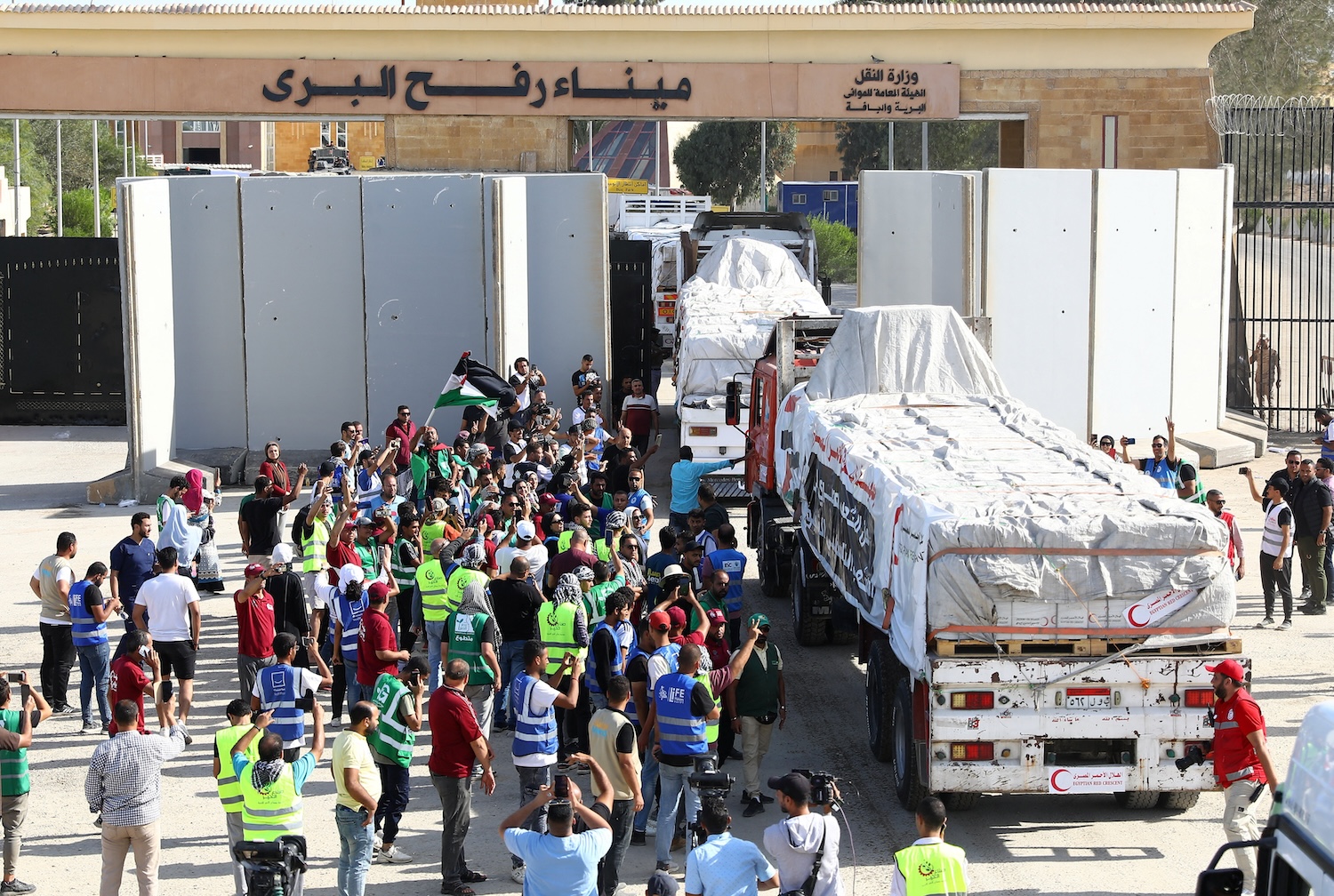Spotlight on Egypt's Humanitarian Efforts: Aiding Palestinian Casualties at Rafah Crossing
The global media giant, CNN, has recently turned its attention to Egypt's commendable efforts in assisting Palestinian casualties and patients at the Rafah border crossing. In a detailed report, CNN highlights the initiatives and operations set in motion by Egypt to facilitate the swift and efficient transfer of those in need of urgent medical attention from the Gaza Strip. This article delves into the various aspects of this humanitarian mission, shedding light on the scale of assistance provided and the crucial role Egypt is playing in alleviating the crisis.
1. Mobilizing Resources and Manpower:
A high-ranking Egyptian official spoke to CNN, revealing that Egypt has deployed ten ambulance vehicles inside Gaza to transfer the injured Palestinian patients. This deployment is part of a larger operation, as the official earlier stated that a total of 80 ambulance vehicles had been dispatched to the Egyptian side of the Rafah border early on Wednesday. This swift mobilization of resources underscores Egypt’s commitment to providing immediate aid and support to those affected by the ongoing conflict.
2. A Race Against Time:
The Egyptian ambulances stationed inside Gaza are not just a testament to Egypt's readiness to help; they are also a critical component in a race against time to save lives. The official disclosed that half of the 80 ambulance vehicles have already made their way into Gaza, ready to transport the casualties and patients to medical facilities where they can receive the necessary care and attention.
3. The Gathering Crowds at Rafah Crossing:
CNN reported that large crowds had gathered at the Rafah border crossing between Gaza and Egypt on Wednesday morning. This congregation of people came amid reports that the border was set to open to allow certain foreign nationals and injured Palestinians to leave the besieged enclave for the first time since the onset of the conflict over three weeks ago. The opening of the Rafah crossing, even if partial, represents a glimmer of hope for those seeking safe passage and medical treatment.
4. The Siege on Gaza and its Consequences:
Israel imposed a comprehensive blockade on Gaza following a surprise attack by Palestinian resistance factions. This blockade has led to severe shortages in food, water, medicine, and electricity supplies, exacerbating the already dire humanitarian situation in the enclave. Egypt’s decision to open the Rafah crossing, even partially, to allow the entry of some aid supplies into Gaza is a vital step. However, international leaders have warned that the current levels of aid are insufficient to meet the needs of the over two million Palestinians living in the Strip.
5. The International Call for Action:
The situation in Gaza has garnered international attention, with leaders from around the world calling for immediate action to address the humanitarian crisis. The opening of the Rafah border crossing by Egypt is a positive development, but it is clear that more needs to be done to ensure the well-being of the Palestinian people. The international community must come together to provide comprehensive support and aid to alleviate the suffering and contribute to a lasting resolution.
Finally:
In conclusion, Egypt's proactive stance and swift action in opening the Rafah border crossing to assist the Palestinian casualties is a shining example of solidarity and humanitarian aid in times of crisis. The mobilization of resources, the deployment of medical personnel, and the opening of the border are all crucial steps in providing immediate relief to those affected by the conflict. However, it is imperative that the international community takes note of the situation and amplifies its efforts to provide aid and support to resolve the crisis. Egypt has set a precedent for immediate action and humanitarian assistance, and it is now up to the rest of the world to follow suit and contribute to the relief and recovery of the Palestinian people.
#ٍSource



